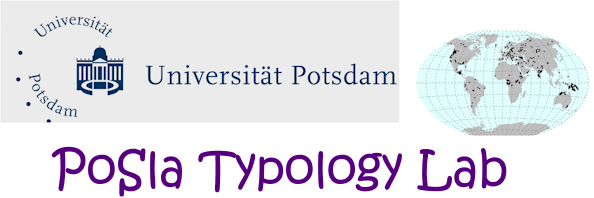Welcome to BivalTyp
BivalTyp is a typological database of bivalent verbs and their encoding frames. As of 2020, the database presents data for 86 languages, mainly spoken in Northern Eurasia. The database is based on a questionnaire containing 130 predicates given in context. Language-particular encoding frames are identified based on the devices (such as cases, adpositions, and verbal indices) involved in encoding two predefined arguments of each predicate (e.g. ‘Peter’ and ‘the dog’ in ‘Peter is afraid of the dog’). In each language, one class of verbs is identified as transitive. The goal of the project is to explore the ways in which bivalent verbs can be split between the transitive and different intransitive valency classes.
The project was designed and implemented by Sergey Say and the BivalTyp team.
How to use BivalTyp
You can browse BivalTyp by predicate (e.g., in case you are interested in how the arguments of the verb ‘to fear’ are encoded in different languages) or by language (e.g., in case you want to explore the behaviour of 130 predicates in a specific language). Besides, you can take an overview of the data in your browser, build customizable maps, or search the database as an extended spreadsheet form. Finally, you can download the spreadsheet with data for further use offline.
In order to properly interpret the tags used in the database, go to how to read the data.
How to cite BivalTyp
To cite BivalTyp as a whole
Say, Sergey (ed.). 2020-. BivalTyp: Typological database of bivalent verbs and their encoding frames. (Available online at https://bivaltyp.info, Accessed on .)
To cite the data from an individual language take the citation form from the specific language page.
Contact details
Please address inquiries about the data or the project at large to Sergey Say (serjozhka /at/ yahoo /dot/ com). If there is a technical issue on the website, please report it here.
Compatibility
Some sections of the web-site rely on modern JavaScript capabilities and will not work correctly in older browsers.
Acknowledgements
We would like to acknowledge the support of the following organisations:

